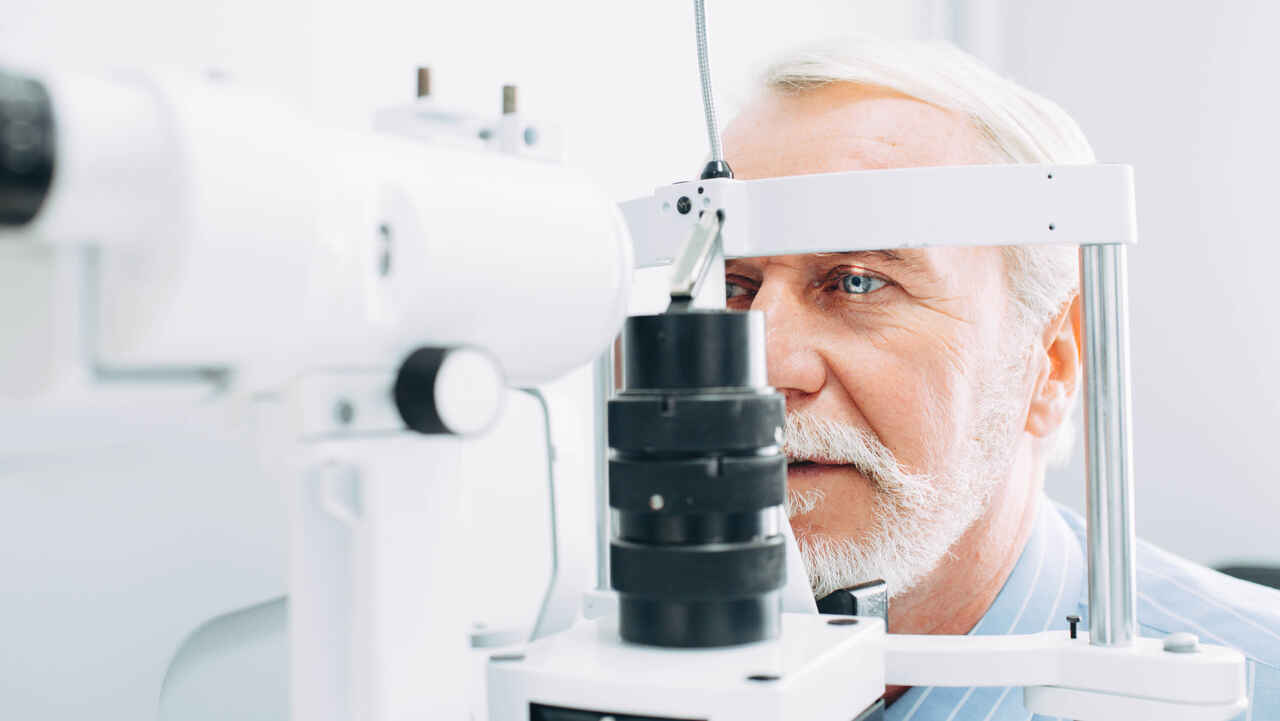 Here’s why having regular eye exams is one of the best ways to save your eyesight.
Here’s why having regular eye exams is one of the best ways to save your eyesight.
When was the last time you had your eyes thoroughly checked? If it’s been more than a year or two, you might want to ask your doctor if you’re due to be examined for glaucoma, which is a major cause of blindness.
Open-angle glaucoma, the most common type, occurs when pressure builds in your eye, often due to excess fluid, and causes damage to your optic nerve. Healthy eyes successfully drain fluid through a spongy tissue near the front of the eye. If you have glaucoma, fluid builds up because it can’t drain quickly enough, like a sink backing up.
Since glaucoma doesn’t usually cause symptoms in the early stages, many people don’t find out they have it until they start losing their eyesight. Although you can’t prevent glaucoma, it’s a good idea to get tested for it so you can take action to protect your vision before it’s too late.
The Importance of Regular Eye Exams
Detecting glaucoma early gives you the best chance of slowing or preventing vision loss. That’s why it’s important to have regular comprehensive dilated eye exams. Checking for glaucoma typically involves:
-
- measuring your eye pressure, cornea thickness and optic nerve
- evaluating your peripheral vision
- examining the drainage angle
- dilating (widening) your pupil to check for optic nerve damage
Talk with your doctor about how often you should be examined, since this depends in part on age and risk factors. You have a higher risk for glaucoma if you:
-
- have a family history of the disease
- are older than 60 (though it can occur at any age)
- are African American or Hispanic/Latino and are older than 40
- have high eye pressure
- are nearsighted or farsighted
- injured your eye in the past
- have certain conditions, such as diabetes, high blood pressure, migraines or poor circulation
- have used steroid medications for a long time
If you’re having symptoms, such as blind spots (typically in your peripheral vision) or tunnel vision, call your doctor so you can be examined.
Also be aware there’s a rare type of glaucoma, called acute angle-closure glaucoma, which is a medical emergency. Seek care immediately if you have this combination of symptoms:
-
- severe eye pain
- nausea
- eye redness
- blurred vision
How to Preserve Your Eyesight
Glaucoma is often treated with prescription eye drops, which help relieve eye pressure. If eye drops aren’t effective, your doctor might recommend laser treatment or surgery.
In addition to having regular checkups and following your doctor’s advice, these simple steps may help keep your eyes healthier:
-
- exercise moderately (but not too intensely)
- wear protective gear when doing home improvements or playing sports
- eat lots of leafy greens, fruits and vegetables
- practice good dental hygiene, since gum disease may affect the optic nerve
- elevate your head (about 20 degrees) when you sleep
- discuss your blood pressure medication with your doctor, since low blood pressure may cause vision problems
Although you can’t restore eyesight lost due to glaucoma, you may be able to prevent further vision loss by taking good care of your eyes and overall health.
Copyright 2020-2021 © Baldwin Publishing, Inc. All rights reserved.
Health eCooking® is a registered trademark of Baldwin Publishing, Inc. Cook eKitchen™ is a designated trademark of Baldwin Publishing, Inc. Any duplication or distribution of the information contained herein without the express approval of Baldwin Publishing, Inc. is strictly prohibited.
Date Last Reviewed: November 13, 2020
Editorial Review: Andrea Cohen, Editorial Director, Baldwin Publishing, Inc. Contact Editor
Medical Review: Perry Pitkow, MD
Learn more about Baldwin Publishing Inc. editorial policy, privacy policy, ADA compliance and sponsorship policy.
No information provided by Baldwin Publishing, Inc. in any article is a substitute for medical advice or treatment for any medical condition. Baldwin Publishing, Inc. strongly suggests that you use this information in consultation with your doctor or other health professional. Use or viewing of any Baldwin Publishing, Inc. article signifies your understanding and agreement to the disclaimer and acceptance of these terms of use.